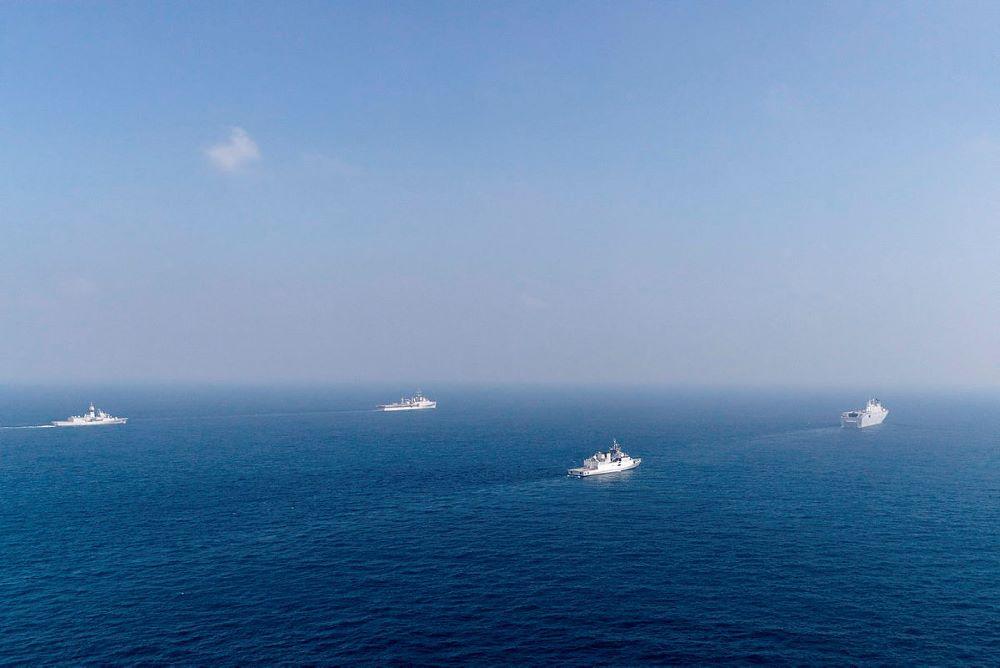
Paul Dibb’s critique of my Australian Foreign Affairs essay, ‘Target Australia: Is the alliance making us less safe?’, falls into three broad categories: the first is about China’s plans to strike Australia, the second about Australia’s plans to hit China, and the third about Australia’s broader willingness to deter military aggression. He identifies the last point as the ‘main problem’, so let’s begin there.
It is certainly true that the weight of emphasis in my piece was on the risks of Australia’s approach—AUKUS and the decision to host US bombers and nuclear-powered submarines (SSNs) at Australian bases—rather than its benefits. But to conclude that the essay ‘focuses entirely on the dangers of resisting and deterring China without comparing that approach with the dangers of not resisting and not deterring China’ is to imply that questioning one method of deterrence is to oppose all forms of deterrence.
It’s a curious feature of Australia’s national security debate that the radical changes made by this government and its predecessor have immediately become the unquestioned status quo. Acquisition of SSNs was once a fringe position, yet after AUKUS was announced, it suddenly became the conventional wisdom. Now we’re told that the decision to station American combat forces on Australian shores is uncontentious, and that to question it is to be soft on China. I don’t accept that framing.
Dibb says it is not in Australia’s interests ‘to see Taiwan’s vibrant democracy crushed by the brutal military occupation of the People’s Liberation Army’. That’s true, but protecting democracy abroad is not Australia’s only interest, or even its principal one—the Afghans who saw their nascent democracy crushed by the Taliban just months after Australian forces withdrew can attest to this. Politics is almost always about choosing the lesser evil, so being pro-democracy doesn’t get us very far in deciding whether we should go to war on Taiwan’s behalf.
I’m baffled by Dibb’s attempt to downplay the status of the upgraded northern Australian Tindal airbase on China’s targeting list. Even if Tindal-based bombers never flew missions against China’s nuclear forces, they would certainly participate in a conventional war, and that alone surely makes Tindal a prime Chinese target. The same will be true of HMAS Stirling, where US SSNs will be rearmed and resupplied for wartime missions. And China wouldn’t know what targets the B-52s were aiming for until the missiles they carry were well on their way. So no, China would not get ‘plenty of warning’ of a strike against its nuclear forces.
Dibb and I agree it would be ‘extremely provocative and dangerous’ for Australia to strike Chinese territory. If the Australian government also agrees, then it would be the work of an instant to renounce any such an objective. It has not done so.
What few hints we have about the strategic reasoning behind AUKUS (to this day, no senior minister has given a speech saying why we need SSNs) suggest the government certainly wants to strike targets at very long range, and that could include mainland China.
I noted a couple of examples of this rhetoric in my essay, but it’s worth adding two more. In 2020, Prime Minister Scott Morrison said Australia ‘must be able to hold potential adversaries’ forces and infrastructure at risk from greater distance’ (my emphasis). And journalist Peter Hartcher wrote of the 2021 Washington meeting at which Australian officials first pitched the AUKUS idea to their White House counterparts: ‘My sources didn’t put it quite this bluntly, but everyone in the room understood that this was about Australia acquiring the power to pose a direct threat to China’s forces and the Chinese mainland.’
Nevertheless, I thank Dibb for an important correction. I erred when I said the only reason for Australia to put Tomahawk cruise missiles on SSNs was to strike Chinese territory. There are indeed other use cases; it’s just that firing Tomahawks from SSNs would be a wildly profligate way to strike Chinese bases in the Pacific islands region, should they ever materialise. There are much cheaper ways to do it.
As for hitting China’s new bases built on reclaimed maritime features in the South China Sea, Beijing clearly believes these facilities are Chinese territory. Australia may disagree, but in China’s eyes, hitting them would be no less provocative and dangerous than bombing the mainland.
At the heart of this debate is a disagreement about the value of distance for Australia’s defence. Dibb writes at one point that ‘Holding a potential adversary’s forces at risk from a greater distance would influence the calculus of enemy costs involved in threatening Australian interests directly.’ But a few sentences later he says, ‘Any credible future enemy operating directly against us will have highly vulnerable lines of logistics support back to its home base in North Asia. The closer it comes to our strategic approaches the more vulnerable its logistic support will become.’
I agree with the latter sentiment. As I argue in my forthcoming book, The Echidna Strategy: Australia’s search for power and peace, Australia’s single biggest defence asset is distance. For all the dramatic progress China has made in its military modernisation, it has not overcome the basic problem of all military technology (except cyber): the further away your target, the harder and more costly it is to hit. The strange thing about Australia’s current emphasis on long-range weaponry, in particular the SSNs, is that it implies Australia’s chief military challenge is to overcome the huge distance that separates us from China, when what we should really be doing is exploiting that distance.